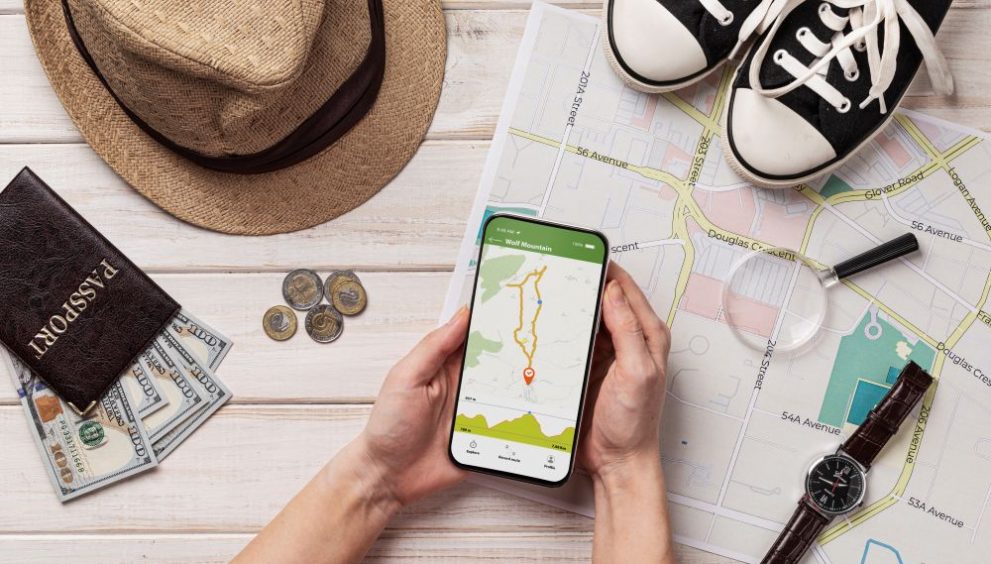Travel apps have become increasingly popular among travelers, offering a convenient way to book flights, hotels, and activities, access reviews and recommendations, and plan trips on a budget. However, while these apps can make travel planning easier, they also come with hidden pitfalls that users should be aware of.
From data privacy concerns to hidden fees and unreliable information, relying too heavily on travel apps can lead to unexpected problems and frustrations. It’s essential for travelers to understand the potential drawbacks and take steps to protect themselves while still enjoying the benefits of these digital tools.
The Rising Popularity of Travel Apps
Travel apps have gained immense popularity due to their convenience and user-friendly features. With just a few taps on a smartphone, travelers can:
- Easily book flights, hotels, and activities
- Access reviews and recommendations from other travelers
- Take advantage of budgeting and trip planning features
These apps have revolutionized the way people plan and book their trips, making the process more streamlined and accessible. However, as with any technology, there are potential drawbacks to consider.
Common Drawbacks of Relying on Travel Apps
Data Privacy Concerns
One of the most significant concerns with travel apps is data privacy. Many apps collect and share personal information, such as:
- Name and contact details
- Passport information
- Credit card numbers
- Location data
This sensitive information can be at risk of theft or misuse if the app’s security measures are inadequate. Travelers should be cautious about the data they share and look for apps with strong privacy policies.
Hidden Fees and Costs
Another common pitfall of travel apps is hidden fees and costs. While many apps advertise low prices and exclusive deals, these offers often come with fine print that can catch travelers off guard. Some common hidden costs include:
- Taxes and surcharges
- Booking fees
- Cancellation or change fees
To avoid surprises, travelers should carefully review the terms and conditions before booking and be aware of any potential extra charges.
Unreliable Information
Travel apps rely on user-generated content, such as reviews and ratings, to provide information about hotels, restaurants, and attractions. However, this information can sometimes be unreliable or misleading. Issues may include:
- Outdated travel itineraries or hotel details
- Inaccurate flight statuses
- Fake or manipulated reviews by bots or advertisers
Travelers should cross-reference information from multiple sources and not rely solely on a single app’s recommendations.
Dependency on Internet and App Glitches
Travel apps require a stable internet connection and can be subject to glitches or crashes. Some common issues include:
- Slow loading times
- App freezing or crashing
- Difficulty accessing information offline
These problems can be particularly frustrating when travelers are in the middle of a trip and need to access important information quickly. It’s always a good idea to have backup plans and offline resources available.
Limited Customer Support
When issues arise with travel apps, getting adequate customer support can be a challenge. Many apps rely on automated responses or have limited options for reaching a human representative. This can lead to:
- Frustration with generic, unhelpful responses
- Difficulty resolving issues like refunds or rebooking
Travelers should research an app’s customer support options before committing to using it for important trip planning.
Real-Life Scenarios Highlighting the Pitfalls
To illustrate the potential pitfalls of travel apps, consider these real-life examples:
- Airbnb requires users to provide a photo of a government-issued ID or passport, which can raise privacy concerns for some travelers.
- Expedia’s app requests permissions to access various phone features, including location, camera, contacts, and storage, which may feel intrusive to users.
- Some fraud app or app scam may trick users into sharing personal information or making fraudulent bookings, leading to financial losses and travel app scam.
Being aware of these scenarios can help travelers make informed decisions about which apps to use and how to protect their information.
How to Avoid Travel App Pitfalls
Choose Apps with Verified Reviews
To find reliable safe travel apps, look for those with high ratings and positive reviews from verified users. Some tips include:
- Read reviews from multiple sources, not just within the app
- Look for apps with a large number of reviews over time
- Check for any news or reports of app scam or fraud app associated with the app
Choosing a reputable safe travel application can help minimize the risks of falling victim to a travel app scam or fraud app.
Read the Fine Print
Before booking through a travel app, carefully review the terms and conditions. Pay attention to:
- Cancellation and refund policies
- Hidden fees or charges
- Data privacy and sharing policies
By understanding the fine print, travelers can avoid unexpected costs and protect their personal information.
Keep Backup Plans
No matter how reliable a travel app may seem, it’s always a good idea to have backup plans. This can include:
- Printing out booking confirmations and itineraries
- Downloading offline maps or translation apps
- Having alternative transportation or accommodation options in mind
Being prepared with backup plans can help travelers navigate any issues that may arise with their chosen apps.
Limit Data Sharing
To protect personal information, travelers should be cautious about the data they share with travel apps. Some tips include:
- Only provide necessary information for bookings
- Avoid linking social media accounts or sharing personal details
- Use a VPN when accessing apps on public Wi-Fi networks
By limiting data sharing and taking steps to secure personal information, travelers can reduce the risks of privacy breaches or identity theft.
Are Travel Apps Still Worth It?
Despite the potential pitfalls, travel apps can still be valuable tools for planning trips. The key is to use them wisely and not rely on them exclusively. Some situations where travel apps can be particularly helpful include:
- Comparing prices and options across multiple providers
- Accessing local recommendations and insider tips
- Tracking travel itineraries and booking details in one place
However, travelers should also be open to traditional methods, such as:
- Booking directly with airlines or hotels
- Consulting with travel agents for complex itineraries
- Seeking recommendations from locals or fellow travelers
By balancing the use of travel apps with other resources, travelers can enjoy the convenience of these tools while minimizing the potential drawbacks.
Plan and Travel Safe with Quick Heal
Remember, while travel apps can be helpful, they should not be the only resource for planning a trip. Balancing their use with traditional methods and being open to serendipitous experiences can lead to a more rewarding and memorable travel experience.
Related Products:
Quick Heal Total Security for Mac
Quick Heal AntiVirus for Server


